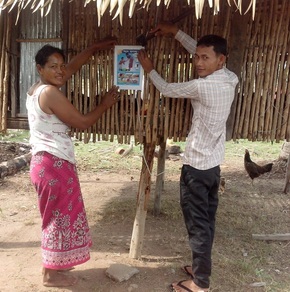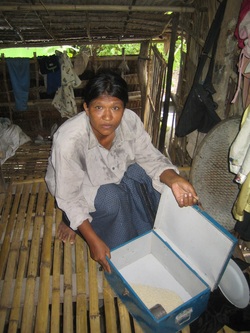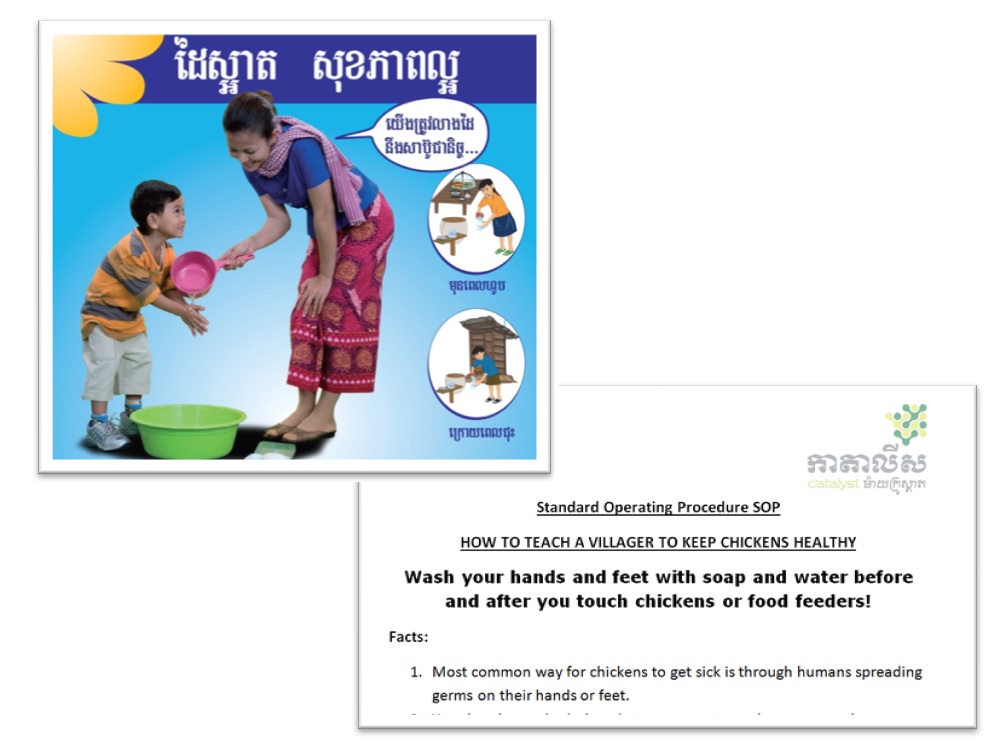 After their first chicken raising cycle, one group of franchisees had higher loss of chickens than other groups. We conducted a thorough investigation to find out if this group was doing anything differently to the other microfranchisees and noted that there was a difference in disease prevention practice. One of our profitable business owners, Heng, discussed his key practices to ensure his chicks grow healthily until the end of the cycle. Heng’s eight keys for successful results are:
Heng’s keen to keep raising chickens through our programme and hopes his strict hygiene protocol will help others to repeat his success.
Heng made $20.66 profit in his last cycle for one hours work a day over 45 days. Many of our villagers would have to work over 20 ten hour days to make the same amount of money in their normal jobs. If you want to make a different in someone’s life today, you can start with as little as NZD $100 and help the ultra-poor make a difference in their lives. Click here to see what you can do to help!
0 Comments
 A village mum showing us all the food she had to feed her two children A village mum showing us all the food she had to feed her two children Our story starts with a small village in the far eastern corner of Cambodia in 2009. Volunteering for a local organisation, we’d travelled to a remote part of Cambodia to visit an impoverished rural community. Far from any roads, we’d woven through a network of dirt tracks to reach a cluster of villages. Untouched by the outside world and still recovering from nearly three decades of conflict and civil war, the villagers struggled to survive, eking out a living however they could. We’d been from house to house and seen how people were running out of rice, their staple diet. Preparing to leave, in one of those haunting moments you never forget, the village elder made an emotional plea to us to help their community in whatever way we could. The stark reality of living on $1 or less a day truly hit home that day - the ultra-poor are risk averse, with little opportunity to improve their situation, and with no buffer in times of crisis or failure. It was a fork in the road for us. We had two choices when we came back to NZ. We could ignore the desperation of those we’d met and look after ourselves; or we could instead use our skills for a larger purpose and try and provide opportunity and hope to those in desperate need. The situation weighed heavily on our hearts as we knew it would be a long term commitment. It seemed crazy. We eventually chose the latter – seeing the utter need carried with it a responsibility in our eyes. After a lot of trial and error it became very clear that the poor needed proven micro-business ideas, improved agricultural products, training and access to markets, along with sustainable forms of microcredit which don’t cause indebtedness. None of the development agencies was offering this package in Cambodia. Microloans were helping people at or above the poverty line; we wanted to help those below. And so we started developing a business-based programme designed to help the ultra-poor. The first step was to choose a prototype microbusiness to test – we chose chicken raising, and tested the profitability by raising our first batch of chickens at the school we’d partnered with in Chhouk. Our next step was to test it with a group of 13 villagers and find markets for the chickens. From there we’ve involved a total of 50 people and we’re continuing to grow and improve what is a unique franchising programme for the poor. We’d like to invite you to follow our story. It’s a story of starting something ‘crazy’ and the power of disrupting conventional thinking – we believe, in a smart way... “We make a living by what we get; we make a life by what we give.” Winston Churchill |
our storyWe founded Catalyst social enterprise after living in South East Asia and seeing first-hand the daily struggle rural villagers face in meeting their basic needs. Archives
December 2017
Categories
All
|


 RSS Feed
RSS Feed